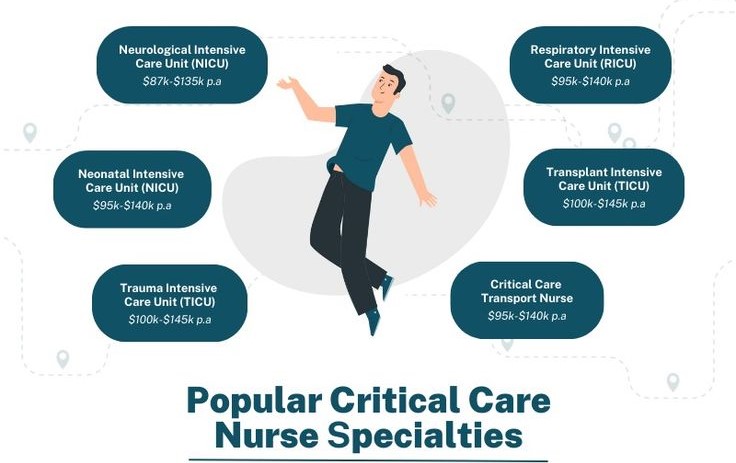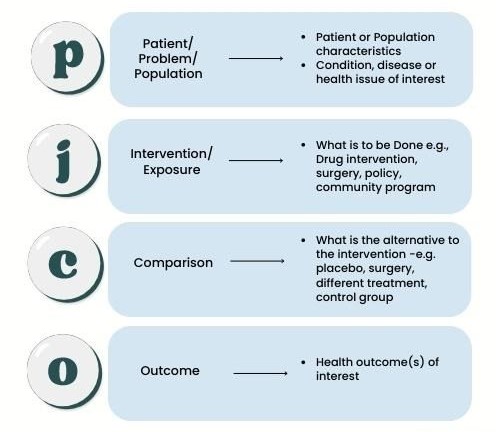The world of critical care nursing is a dynamic and demanding one, filled with complex challenges and constant innovation. As practitioners at the forefront of patient care, critical care nurses are uniquely positioned to contribute valuable insights through research. Writing a critical care nursing research paper is not merely a scholarly pursuit. Instead, it is an opportunity to improve patient outcomes, advance the profession, and shape the future of critical care.
This guide offers definitive strategies and tools for navigating the process of writing a critical care nursing research paper successfully.
Understanding the Core Elements of Critical Care Nursing
Critical care in nursing is a specialized field that focuses on providing high-acuity, complex medical care to patients with life-threatening illnesses or injuries. These patients often require intensive monitoring, complex interventions, and specialized medical knowledge and skills.
Here are some key aspects of critical care nursing:
Patient Population:
- Critically Ill: These patients have unstable vital signs, require advanced life support, and are at high risk for complications.
- Acutely Injured: These patients may have sustained trauma, surgical complications, or other acute injuries requiring immediate medical attention.
- Complex Medical Conditions: Patients with severe chronic illnesses, such as heart failure, respiratory failure, or organ failure, may also require critical care.
Setting:
- Intensive Care Unit (ICU): The most common setting for critical care, ICUs are equipped with advanced monitoring equipment, ventilators, and other specialized technologies.
- Cardiac Care Unit (CCU): Dedicated to patients with heart conditions, including heart attacks, arrhythmias, and heart failure.
- Emergency Department (ED): Critical care nurses often work in the ED to provide initial stabilization and care for critically ill or injured patients.
- Other Settings: Critical care nurses may also work in specialized units, such as burn units, neuro-intensive care units, or pediatric intensive care units.

Core Responsibilities:
- Assessment and Monitoring: Critical care nurses continuously assess patients' vital signs, physical status, and response to treatment.
- Complex Interventions: They administer medications, perform invasive procedures (e.g., central line insertion), manage ventilators, and provide other critical care interventions.
- Patient Education and Support: Critical care nurses educate patients and families about their condition, treatment plan, and care needs. They also provide emotional support and advocacy for patients and families.
- Collaboration with Other Healthcare Professionals: Critical care nurses work closely with physicians, respiratory therapists, pharmacists, and other healthcare professionals to provide comprehensive care for critically ill patients.
- Advocacy for Patient Safety: Critical care nurses play a critical role in ensuring patient safety through vigilant monitoring, communication, and identification of potential risks.
Key Skills and Knowledge:
- Advanced Assessment and Critical Thinking: Critical care nurses must be able to rapidly assess patients' conditions, identify potential problems, and make timely clinical decisions.
- Technical Expertise: They need a strong understanding of advanced medical equipment, procedures, and technologies.
- Strong Communication and Interpersonal Skills: Critical care nurses need to effectively communicate with patients, families, and other healthcare professionals.
- Emotional Resilience and Compassion: Critical care nursing is emotionally demanding work, requiring nurses to maintain composure and empathy while dealing with life-threatening situations.
In summary, critical care nursing is a specialized field that demands a high level of knowledge, skills, and commitment. It is a vital role in providing care for patients facing the most serious medical challenges.
Effective Strategies for Writing a Critical Care Nursing Research Paper
1. Defining Your Research Focus: Asking the Right Questions
The first step in crafting a compelling critical care nursing research paper is identifying a relevant and impactful research question. Consider the following prompts to spark your ideas:
- Clinical Practice Gaps: What are the current challenges and gaps in critical care practice? Are there specific patient populations or interventions that require further investigation?
- Emerging Trends: What new technologies, medications, or healthcare models are emerging in critical care? How can their impact be evaluated and optimized?
- Patient Safety and Quality Improvement: Are there opportunities to enhance patient safety, reduce complications, or improve quality of care in critical care settings?
- Nurse-led Innovation: Are there specific areas where nurses can contribute innovative solutions to improve patient outcomes or efficiency within critical care?
2. Developing a Strong Research Framework: The Foundation of Your Argument
Once you have your research question, you need to build a solid theoretical framework. This framework provides a foundation for your research, guides your methodology, and allows you to interpret your findings in a meaningful context. Consider the following:
- Theoretical Framework: Identify relevant nursing theories or models that can inform your research question. For example, Neuman Systems Model can be applied to studies exploring the impact of stress on critical care patients, while the Theory of Self-Care Deficit can be used to investigate patient self-management strategies in critical illness.
- Conceptual Framework: Develop a clear diagram or model that visually represents the relationships between the key concepts in your study. This helps to clarify your research question and the underlying assumptions.
- Literature Review: Conduct a thorough review of existing literature to identify gaps in knowledge, relevant findings, and potential areas for further investigation. This is essential for building a compelling argument for your critical care nursing research paper.

3. Choosing the Right Methodology: A Guide to Data Collection and Analysis
The methodology section of your critical care nursing research paper outlines how you will collect and analyze data to answer your research question. Consider the following factors:
- Quantitative Research: Uses numerical data to test hypotheses and identify relationships between variables. Examples include randomized controlled trials (RCTs), cohort studies, and surveys.
- Qualitative Research: Focuses on understanding experiences, perspectives, and meanings. Examples include interviews, focus groups, and observations.
- Mixed Methods Research: Combines both quantitative and qualitative approaches to gain a comprehensive understanding of the research question.
The choice of methodology should be based on the nature of your research question, the available resources, and the ethical considerations involved. For example, a critical care nursing research paper investigating the impact of a new pain management protocol might employ a quantitative approach using a RCT to compare patient outcomes between intervention and control groups. Conversely, a study exploring the lived experiences of critically ill patients might use a qualitative approach through in-depth interviews.
4. Ensuring Rigorous Data Collection and Analysis: Building Trustworthy Findings
Once you have chosen your methodology, the next step is to meticulously plan and execute data collection and analysis. This is crucial for ensuring the validity and reliability of your research findings.
- Data Collection: Develop clear and standardized protocols for collecting data. Ensure that your instruments are reliable, valid, and appropriate for your target population. For example, you may use validated questionnaires to measure pain levels, satisfaction with care, or quality of life.
- Data Analysis: Select appropriate statistical or analytical methods to analyze your data based on your research question and the type of data you have collected. Consult with a statistician or research advisor to ensure you are using the most appropriate techniques.
- Ethical Considerations: Obtain informed consent from participants and adhere to all ethical guidelines for research involving human subjects. Ensure that the data is anonymized and protected, and that participant confidentiality is maintained throughout the research process.
5. Crafting a Compelling Narrative: Communicating Your Research Findings
The final stage in writing a critical care nursing research paper is presenting clear, concise and engaging findings. The key components include:
- Abstract: A brief summary of your research question, methodology, key findings, and conclusions.
- Introduction: Introduce your research topic, provide background information, and clearly state your research question and hypothesis (if applicable).
- Literature Review: Present a comprehensive review of existing literature, highlighting key findings and identifying gaps in knowledge.
- Methodology: Describe the design, setting, participants, and data collection and analysis procedures used in your study.
- Results: Present your findings in a clear and concise manner, using tables, figures, and statistical analysis as appropriate.
- Discussion: Interpret your findings in relation to your research question, discuss limitations of the study, and highlight the implications of your findings for critical care practice.
- Conclusion: Summarize your main findings, reiterate the significance of your research, and propose future directions for research in the field.
- References: Include a comprehensive list of all sources cited in your paper.
6. Publishing Your Critical Care Nursing Research Paper: Reaching a Wider Audience
Once your critical care nursing research paper is complete, you can consider submitting it for publication in a peer-reviewed journal. This allows you to share your findings with a broader audience and contribute to the advancement of knowledge in critical care nursing.

- Journal Selection: Choose journals that are relevant to your research topic and have a high impact factor.
- Manuscript Preparation: Follow the journal's specific guidelines for manuscript submission, including formatting, referencing, and word count limitations.
- Peer Review Process: Your paper will be reviewed by other experts in the field, who will provide feedback and recommendations for revisions.
- Publication: If your paper is accepted for publication, it will be published in the journal and made available to a wide audience.
7. Continuously Learning and Growing: Embracing the Research Journey
Writing a critical care nursing research paper is a challenging but rewarding endeavor. It requires dedication, perseverance, and a commitment to lifelong learning. Here are some tips for success:
- Join a research group or mentorship program: Collaborate with other researchers and benefit from their guidance and expertise.
- Attend conferences and workshops: Stay current on the latest research trends and develop your research skills.
- Publish your work: Sharing your findings with the wider research community can have a significant impact on patient care. It can also advance the field of critical care nursing.
Examples of Compelling Critical Care Nursing Research Paper Topics
Here are some examples of potential critical care nursing research paper topics:
- Impact of Early Mobility on Ventilator-Associated Pneumonia (VAP) in Critically Ill Patients: Examining the effectiveness of early mobility protocols on reducing VAP incidence in mechanically ventilated patients.
- The Role of Family Presence in the Intensive Care Unit (ICU): Exploring the impact of family presence on patient outcomes, satisfaction, and stress levels in the ICU.
- Evaluating the Effectiveness of a Novel Pain Management Protocol for Critically Ill Children: Assessing the effectiveness and patient satisfaction with a newly implemented pain management protocol specifically designed for pediatric ICU patients.
- The Impact of Nurse Staffing Ratios on Patient Mortality and Length of Stay in the ICU: Investigating the correlation between nurse staffing levels and patient outcomes in critical care units.
- The Use of Simulation-Based Training for Critical Care Nurses: Examining the effectiveness of simulation-based training on improving critical care nurses' skills and knowledge.
Writing a critical care nursing research paper is a valuable opportunity to make a tangible contribution to the field. Following the steps outlined in this guide will enable you to develop a strong research question, build a solid theoretical framework, conduct rigorous data collection and analysis, and present compelling findings. Embrace the challenges, celebrate your successes, and let your research be a testament to the dedication of critical care nurses.
Professional Critical Care Nursing Research Paper Help
At Exemplary Dissertations, we are the professionals that you should always engage for customized critical care nursing research paper help. Our service covers topic suggestion, research paper writing, editing and proof reading and, plagiarism check and removal. Apart from research papers, we can also help you with writing original nursing essays, case studies and dissertations for all academic levels.